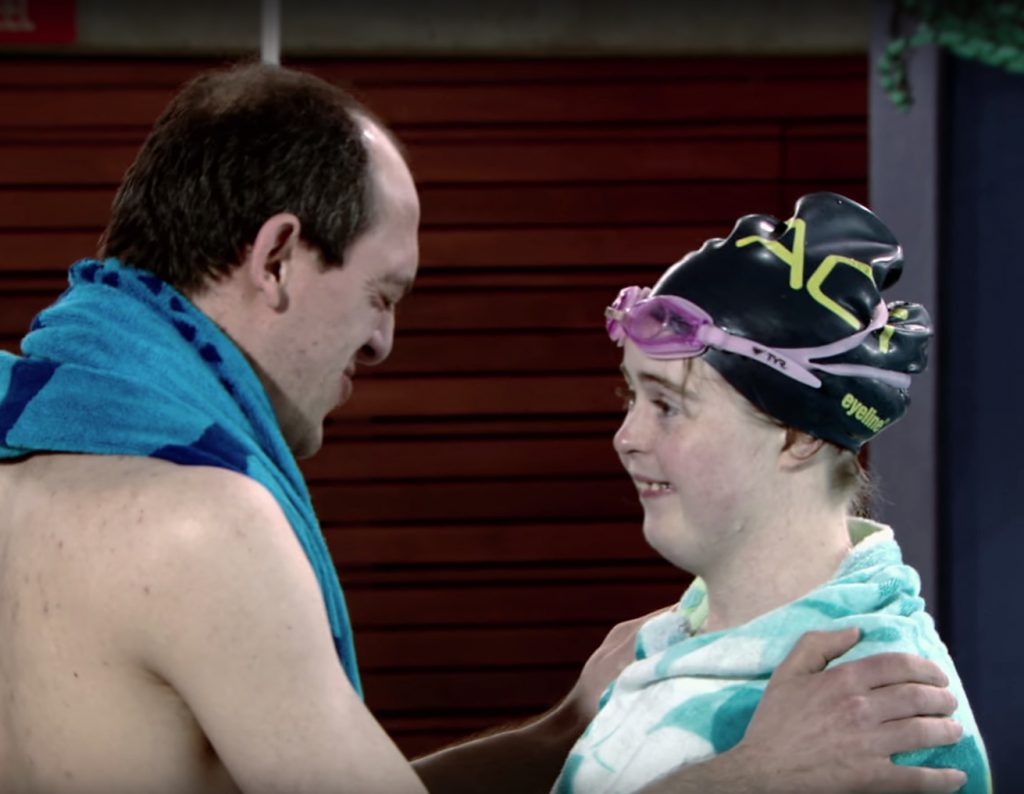Short films offer new perspectives on disability in CDS screening
People with disabilities appeared as lovers, lovable schemers and more in Disability Cinema, today’s installment of CDS’s Lunchtime Learning series. Megan Pell, a member of CDS’s Positive Behavior Support Project, introduced the short films showcase. Lunchtime Learning presents sessions on current topics in the disability community.
Two films, “Beautiful” and “Cared Witless,” focused on people with disabilities acting with an independence that made others uncomfortable. “Beautiful” told the story of young adults with intellectual disabilities whose ability to have a serious, committed romantic relationship was ultimately affirmed. “Cared Witless” showed a man with Down syndrome tricking a rude personal assistant to enjoy a self-directed day out.
In another film – a music video – the physicality between actor Matthew Lillard and self-advocate Victor Pineda, who uses a wheelchair, challenged perceptions of people with disabilities as frail. The pair danced to “Catch Me” by the indie rock band Braves. Several Lunchtime Learning audience members remarked how the intensity of the action, which one compared to “roughhousing,” undermined stereotypes about the physical fragility of people with disabilities.
The audience also reacted strongly to the documentary “Autism: A Somali-American Story,” which examined the unusually high prevalence of autism in U.S.-born children of Somali refugees. It showed Somali mothers supporting each other, as at first they found autism diagnoses shameful, then requesting medical research. Audience members expressed shock at the situation, which none appeared to have heard about, and admiration for the mothers’ advocacy.

